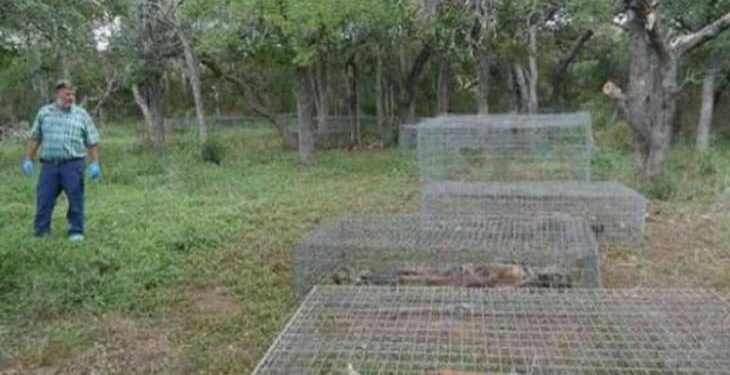Basically, body farming is the practise of leaving dead human bodies outside, in cordoned off ‘farms’ and exposed to the elements, in order to study the several aspects of the decomposition process.
At the moment, this slightly unnerving form of research only takes place in the US, where bodies are donated to facilities such as the Texas State University at Freeman Ranch. The process is known as human taphonomy, which is the study of what happens to an organism after its death. Scientists at these outdoor labs can monitor the process of human decomposition in a variety of different situations.
To understand decomposition better, bodies are kept in different situations, such as inside a car, submerged in water, or wrapped in a blanket.
The practise also has a lot of other practical, CSI-style uses. It can be helpful in determining information such as the timing and circumstances of a death. While the general process of decomposition of a body is universally similar, factors like temperature, humidity and general climate make a world of difference.
The first research facility of this kind was started at the University of Tennessee, Knoxville in 1981 by forensic anthropologist Bill Bass, and there are 6 such facilities in the US today.
While there are only body farms in the US right now, there’s word that facilities like these are going to come up soon in the UK, Australia and even in India.
PNN






































